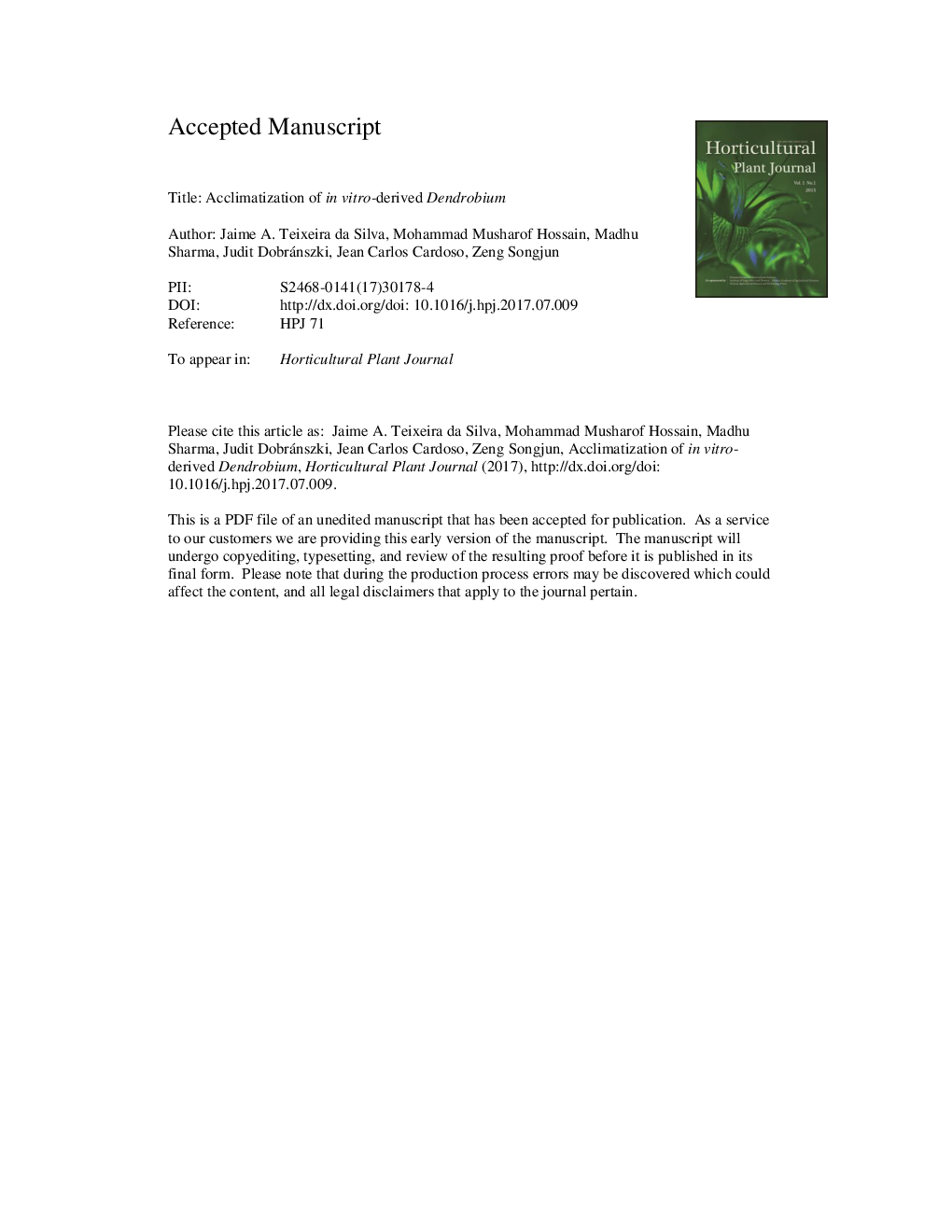| Article ID | Journal | Published Year | Pages | File Type |
|---|---|---|---|---|
| 8892219 | Horticultural Plant Journal | 2017 | 24 Pages |
Abstract
The successful ex vitro establishment of Dendrobium plantlets raised in vitro determines the quality of the end product (cut flowers or potted plants) in commercial production for economic gain. When in vitro Dendrobium plantlets are transplanted from the culture room to greenhouse conditions, they may desiccate or wilt rapidly and can die as a result of changes in the environment, unless substantial precautions are taken to adapt plantlets to a new environment. The acclimatization of in vitro-grown Dendrobium plantlets to an ex vitro environment by gradually weaning them towards ambient relative humidity and light levels facilitates better survival of young and physiologically sensitive plantlets. Dendrobium plantlets raised in vitro must thus undergo a period of acclimatization or transitional development to correct anatomical abnormalities and to enhance their physiological performance to ensure survival under ex vitro conditions. The most common approach to improve the survival of Dendrobium plantlets upon transfer to an ex vitro environment is their gradual adaptation to that environment. Under such conditions, plants convert rapidly from a heterotrophic or photomixotrophic state to an autotrophic growth, develop a fully functional root system, and better control their stomatal and cuticular transpiration. Gradual adaptation is carried out in a greenhouse by decreasing relative humidity using fog or mist chambers and by increasing light intensity using shading techniques. This review details the acclimatization and ex vitro survival of Dendrobium plants produced in vitro. This advice is also useful for other orchids.
Related Topics
Life Sciences
Agricultural and Biological Sciences
Forestry
Authors
Jaime A. Teixeira da Silva, Mohammad Musharof Hossain, Madhu Sharma, Judit Dobránszki, Jean Carlos Cardoso, ZENG Songjun,
